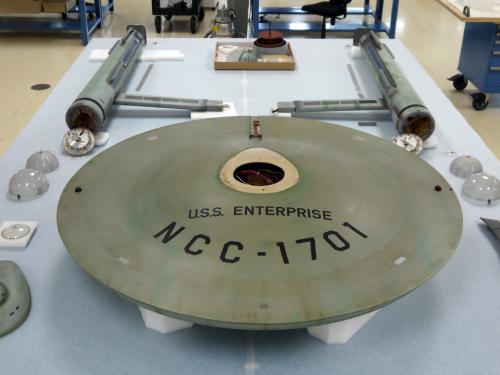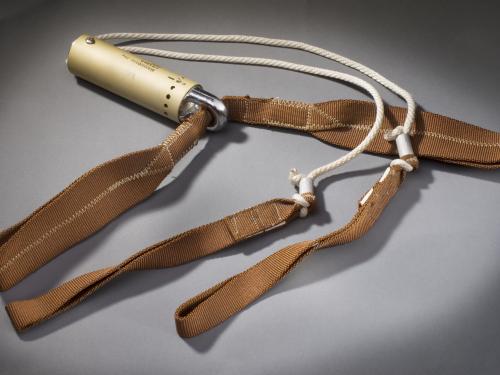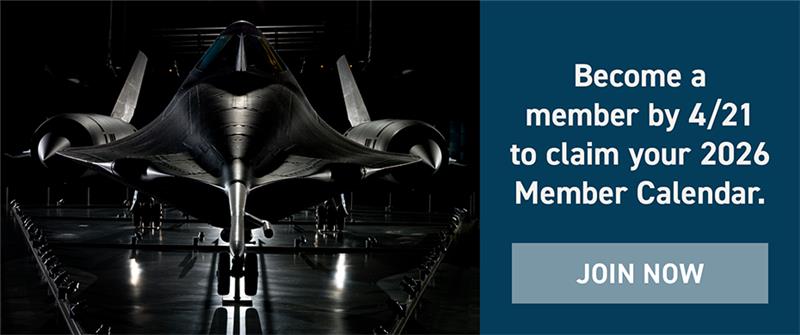
Stories of daring, stories of technological feats, stories of prevailing against the odds ... these are the stories we tell at the National Air and Space Museum. Dive in to the stories below to discover, learn, and be inspired.
Showing 1231 - 1240 of 1761

February 07, 2016
Through the history of aviation, pilots have worn many types of helmets. Exhibits at the National Air and Space Museum range from Paul Studenski's 1912 era leather flying helmet, to Apollo Soucek's furry helmet, to Mike Melvill's SpaceShipOne helmet. Today, however, in honor of Super Bowl 50, we will remember Robert "Bob" Eucker's football helmet.

February 04, 2016
The Museum has been tackling a variety of artifact treatments through its Collections Care and Preservation Fund (CCPF) Triage Project. The goal of the project is to stabilize artifacts as they are moved from the Paul E. Garber Preservation, Restoration, and Storage Facility to state-of-the-art storage located at the Steven F. Udvar-Hazy Center in Chantilly, Virginia. The triage project addresses urgent issues affecting artifacts such as active corrosion, pest infestation, biological growth, and physical insecurities.

February 02, 2016
When African American pilot, engineer, and entrepreneur William Powell was a young adult, even the skies were segregated. Many would-be African American pilots, such as first licensed African American pilot Bessie Coleman, were forced to go to France for pilot training and licenses issued by the Fédération Aéronautique Internationale.

January 28, 2016
Stardate 1601.28: After a year of extensive research, conservation work on the original studio model of the USS Enterprise is now underway in the Museum’s spacedock.

January 28, 2016
The crew members of the Challenger represented a cross section of the American population in terms of race, gender, geography, background, and religion. The explosion became one of the most significant events of the 1980s, as billions around the world saw the accident on television and empathized with any one of the several crew members killed. Each has a unique story.

January 20, 2016
Every once in a while a curator will receive a new collection of objects that has in it one very special item that begs to have its story told. This recently happened to me when I unpacked Alan Eustace’s stratospheric spacesuit. The former Google executive and engineer, along with his StratEx team, set several records on October 24, 2014 including the world’s highest altitude parachute jump at 41.425 kilometers (135,899 feet).

January 14, 2016
Theodore E. Boyd was a 24-year-old teacher from Tennessee when the United States entered World War I in 1917. Boyd initially volunteered for Reserve Officers Training School at Fort Oglethorpe, Georgia. He then accepted a commission to be a Second Lieutenant in the Field Artillery Section. In France, Boyd served with the 88th Aero Squadron (Attached), 7th Field Artillery, Air Service, American Expeditionary Forces (AEF). In 2012, the National Air and Space Museum Archives received the Theodore E. Boyd World War I Collection (Acc. No. 2013-0016), and through the documents in the collection—correspondence, photographs, military orders, flight logs, and memoirs—we can reconstruct Boyd’s World War I experience.

January 07, 2016
Here on Earth, everyone knows exercise is important, but in the weightless environment of space, it’s really important.

January 04, 2016
You may be surprised to know that in addition to the largest collection of authentic aviation- and space-related artifacts in the world, our Museum also has an impressive model collection. Our model collection contains more than 5,700 models of aircraft, balloons, and more. Nearly 1,100 of those models are on display at our Museum and the rest are in storage. Approximately 800 of those models share space with our staff on the third floor of the Museum in Washington, DC. But not for much longer. Last June, we began the time-consuming process of relocating the models from the third floor to storage at the Steven F. Udvar-Hazy Center in Chantilly, Virginia. The move was brought on by a multi-year project at the Museum in DC to upgrade the exterior of the building and the interior mechanical systems. Before construction begins, the models need to be moved. How do you relocate more than 800 delicate models?

December 31, 2015
It’s a tall order to sum up the past year at the National Air and Space Museum in a simple list. We’ve hosted astronauts and record breakers, we’ve moved and conserved dozens of artifacts as we transformed the Boeing Milestones of Flight Hall (and discovered some incredible things in the process), and held programs that illuminated the impact of aviation and spaceflight on our everyday lives. Where would I even start? I propose a compromise: I’ll summarize ten of my favorite events of this past year, then I’m relying on you to suggest yours. Did you have an experience at the Museum this past year that should be on our list? We’re asking you to share your favorite Air and Space moments in the comments.
